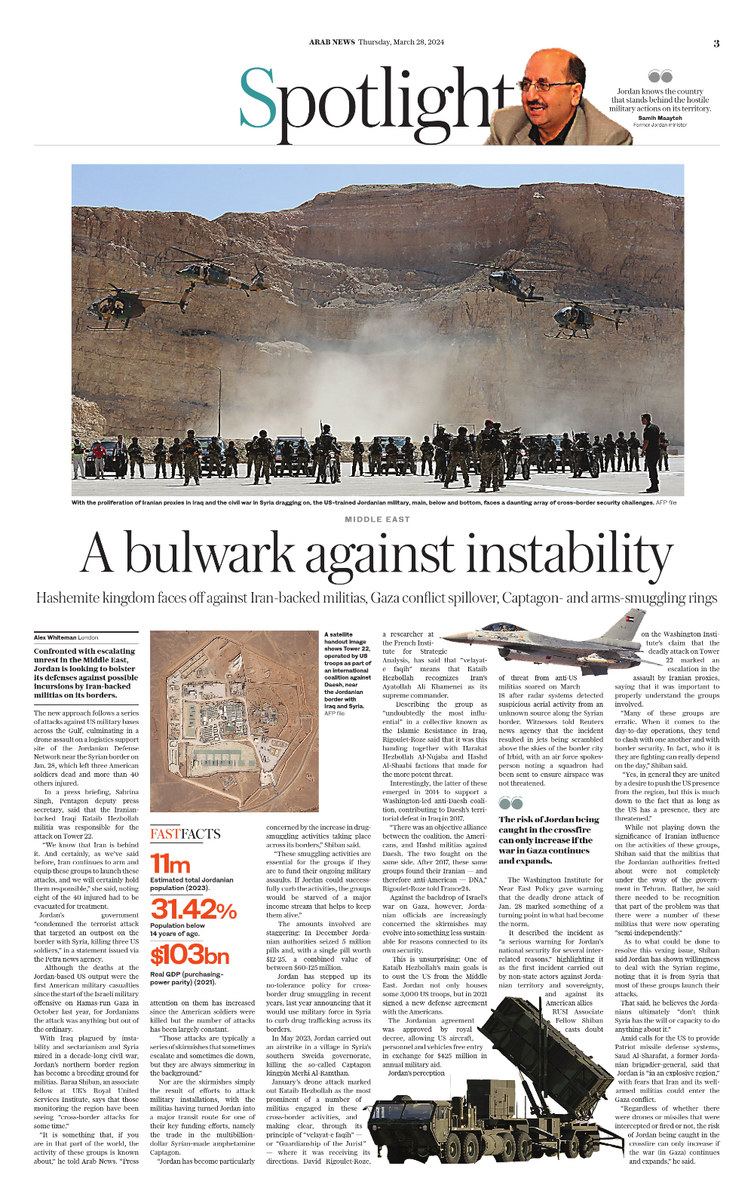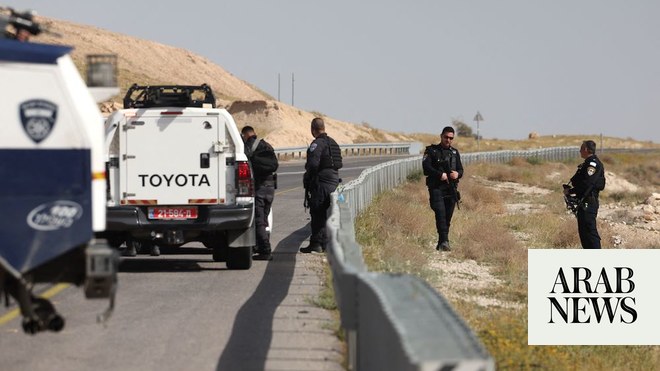LONDON: Amid escalating geopolitical tensions in the Middle East, Jordan is looking to bolster its defenses against possible incursions by Iran-backed militias on its borders.
The new approach follows a series of attacks against US military bases across the Gulf, culminating in a drone assault on a logistics support site of the Jordanian Defense Network near the Syrian border on Jan. 28, which left three American soldiers dead and more than 40 others injured.
In a press briefing, Sabrina Singh, Pentagon deputy press secretary, said that the Iran-backed Iraqi Kataib Hezbollah militia was responsible for the attack on Tower 22.
“We know that Iran is behind it. And certainly, as we’ve said before, Iran continues to arm and equip these groups to launch these attacks, and we will certainly hold them responsible,” she said, noting that eight of the 40 injured had to be evacuated for treatment.
Jordan’s government “condemned the terrorist attack that targeted an outpost on the border with Syria, killing three US soldiers,” in a statement issued via the Petra news agency.
Although the deaths at the Jordan-based US output were the first American military casualties since the start of the Israeli military offensive on Hamas-run Gaza in October last year, for Jordanians, the attack was anything but out of the ordinary.
With Iraq plagued by instability and sectarianism and Syria mired in a decade-long civil war, Jordan’s northern border region has become a breeding ground for militias.
Baraa Shiban, an associate fellow at the UK’s Royal United Services Institute, says that those monitoring the region have been seeing “cross-border attacks for some time.”
He told Arab News: “If you are in that part of the world, the activity of these groups is known about. Press attention on them has increased since the American soldiers were killed, but the number of attacks has been largely constant.
“Those attacks are typically a series of skirmishes that sometimes escalate and sometimes die down, but they are always simmering in the background.”
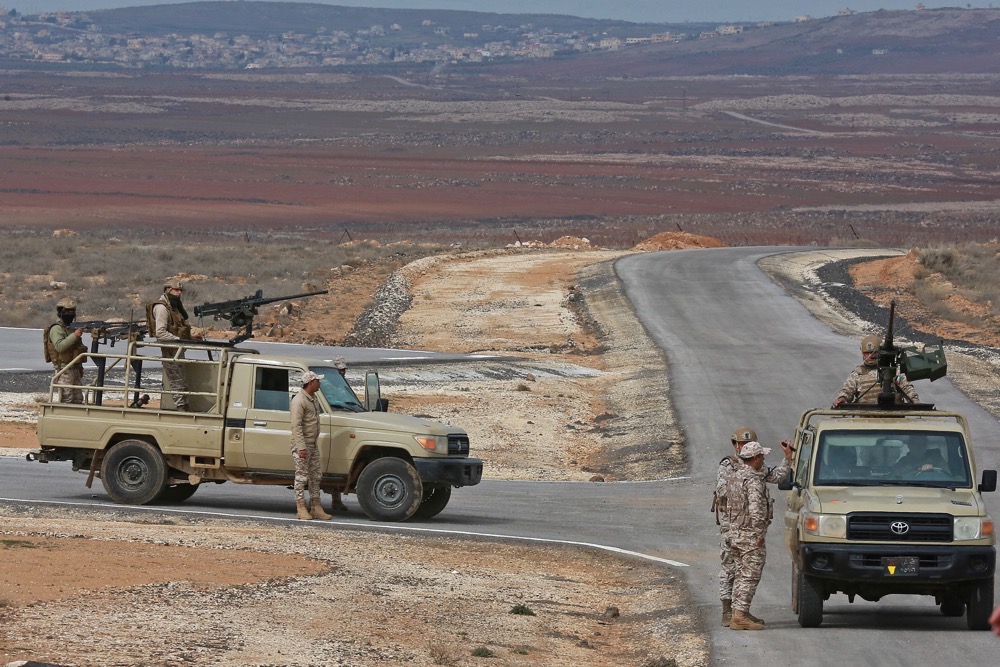
Nor are the skirmishes simply the result of efforts to attack military installations, with the militias having turned Jordan into a major transit route for one of their key funding efforts, namely the trade in the multi-billion-dollar Syrian-made amphetamine Captagon.
“Jordan has become particularly concerned by the increase in drug-smuggling activities taking place across its borders,” Shiban said.
“These smuggling activities are essential for the groups if they are to fund their ongoing military assaults. If Jordan could successfully curb the activities, the groups would be starved of a major income stream that helps to keep them alive.”
The amounts involved are staggering: In December, Jordanian authorities seized 5 million pills and, with a single pill worth $12-25, a combined value of between $60-125 million.
Jordan has stepped up its no-tolerance policy for cross-border drug smuggling in recent years, last year announcing that it would use military force in Syria to curb drug trafficking across its borders.
In May 2023, Jordan carried out an airstrike in a village in Syria’s southern Sweida governorate, killing the so-called Captagon kingpin Merhi Al-Ramthan.
INNUMBERS
• 11m Estimated total population (2023)
• 31.42% Population below 14 years of age
• $102.8bn Real GDP (purchasing-power parity) (2021)
January’s drone attack marked out Kataib Hezbollah as the most prominent of a number of militias engaged in these cross-border activities, and making clear, through its principle of “velayat-e faqih” — or “Guardianship of the Jurist” — where it was receiving its directions.
David Rigoulet-Roze, a researcher at the French Institute for Strategic Analysis, has said that “velayat-e faqih” means that Kataib Hezbollah recognizes Iran’s Ayatollah Ali Khamenei as its supreme commander.
Describing the group as “undoubtedly the most influential” in a collective known as the Islamic Resistance in Iraq, Rigoulet-Roze said that it was this banding together with Harakat Hezbollah Al-Nujaba and Hashd Al-Shaabi factions that made for the more potent threat.
Interestingly, the latter of these emerged in 2014 to support a Washington-led anti-Daesh coalition, contributing to Daesh’s territorial defeat in Iraq in 2017.
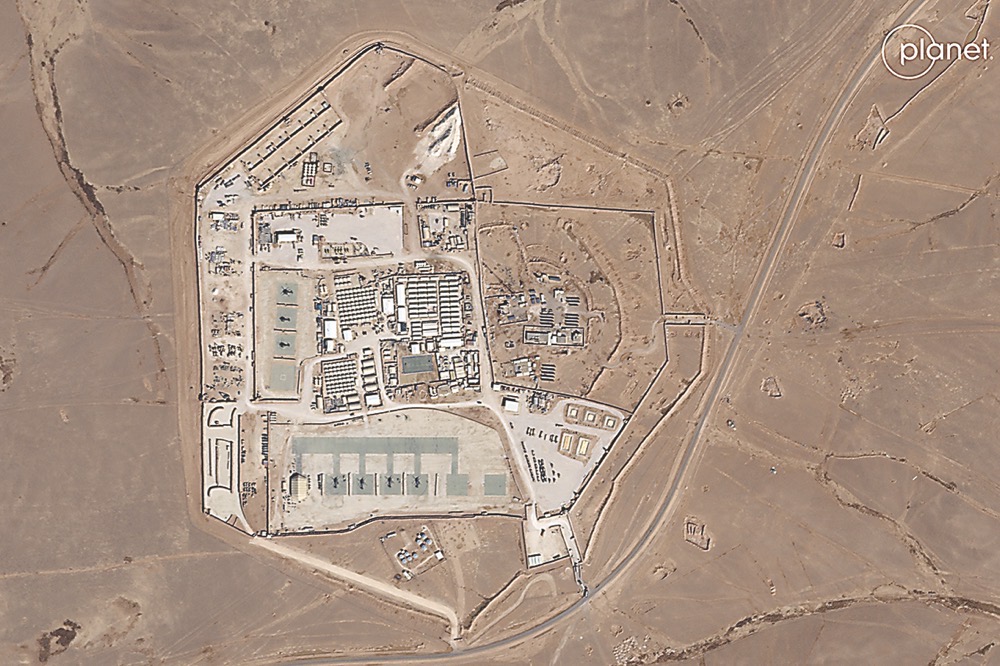
“There was an objective alliance between the coalition, the Americans, and Hashd militias against Daesh. The two fought on the same side. After 2017, these same groups found their Iranian — and therefore anti-American — DNA,” Rigoulet-Roze told France24.
Against the backdrop of Israel’s war on Gaza, however, Jordanian officials are increasingly concerned the skirmishes may evolve into something less sustainable for reasons connected to its own security.
This is unsurprising: One of Kataib Hezbollah’s main goals is to oust the US from the Middle East. Jordan not only houses some 3,000 US troops but in 2021 signed a new defense agreement with the Americans.
The Jordanian agreement was approved by royal decree, allowing US aircraft, personnel and vehicles free entry in exchange for $425 million in annual military aid.
The deal committed Jordan to provide logistical and other support for the estimated 3,000 US troops in the country.
Several members of Jordan’s parliament, especially members of the opposition Islamic Action Front, condemned the agreement, saying it gave away too many prerogatives to the US.
Jordan is one the biggest recipients of US aid, yet the subject of American troops and the bases they use in the country is a politically sensitive one.
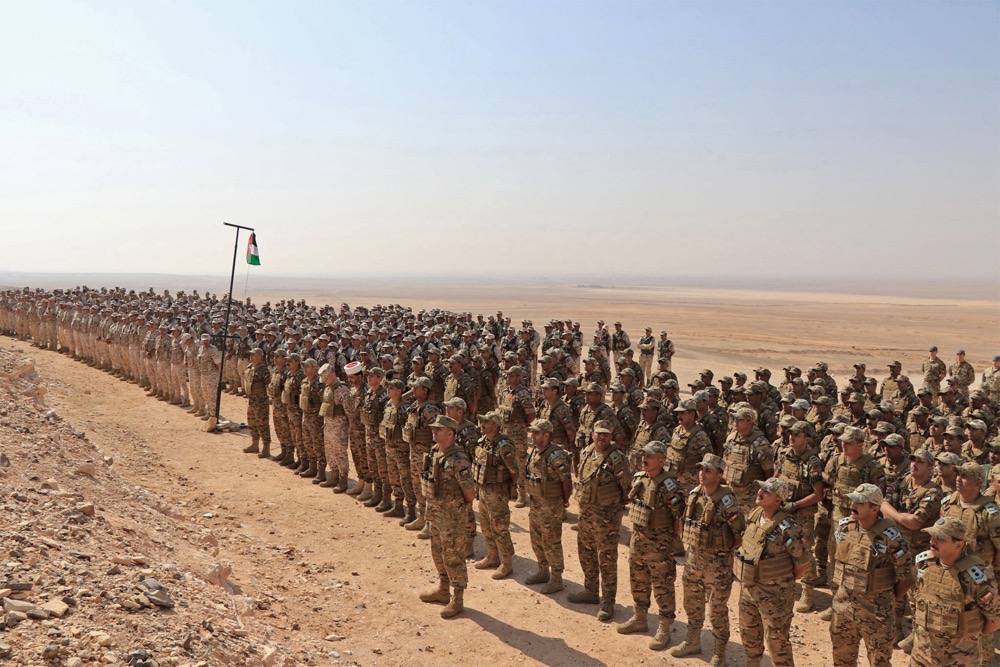
Acknowledging the divisions over the defense agreement, Jawad Anani, Jordan’s former foreign minister, said there was “no chance” the deal with the US would be canceled given the present situation.
“There is a sense of resentment and displeasure (with the US), but there’s no way for Jordan to renege on its agreement,” he said in an interview. “Jordanians are equally unhappy with the UK, Germany, and France; we cannot break our relations with everyone.”
Jordan’s perception of threat from anti-US militias soared on March 18 after radar systems detected suspicious aerial activity from an unknown source along the Syrian border.
Witnesses told Reuters news agency that the incident resulted in jets being scrambled above the skies of the border city of Irbid, with an air force spokesperson noting a squadron had been sent to ensure airspace was not threatened.
The Washington Institute for Near East Policy gave warning that the deadly drone attack of Jan. 28 marked something of a turning point in what had become the norm.
It described the incident as “a serious warning for Jordan’s national security for several interrelated reasons,” highlighting it as the first incident carried out by non-state actors against Jordanian territory and sovereignty, and against its American allies.
Shiban, RUSI associate fellow, casts doubt on the Washington Institute’s claim that the deadly attack on Tower 22 marked an escalation in the assault by Iranian proxies, saying that it was important to properly understand the groups involved.
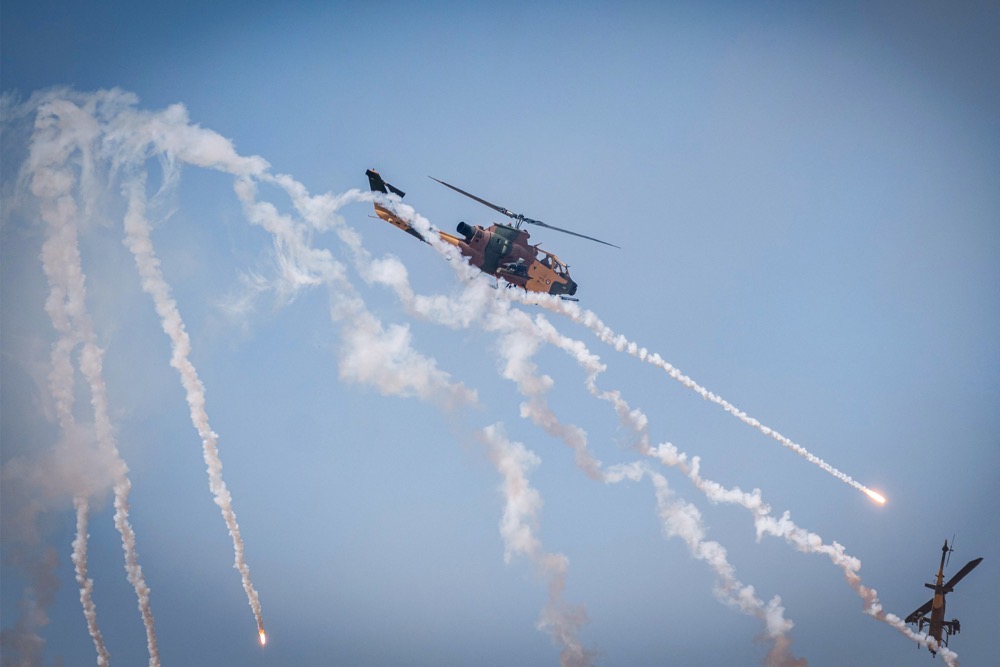
“Many of these groups are erratic. When it comes to the day-to-day operations, they tend to clash with one another and with border security. In fact, who it is they are fighting can really depend on the day,” Shiban said.
“Yes, in general, they are united by a desire to push the US presence from the region, but this is much down to the fact that as long as the US has a presence, they are threatened.”
While not playing down the significance of Iranian influence on the activities of these groups, Shiban said that the militias that the Jordanian authorities fretted about were not completely under the sway of the government in Tehran.
Rather, he said there needed to be recognition that part of the problem was that there were a number of these militias that were now operating “semi-independently.”
As to what could be done to resolve this vexing issue, Shiban said Jordan has shown willingness to deal with the Syrian regime, noting that it is from Syria that most of these groups launch their attacks.
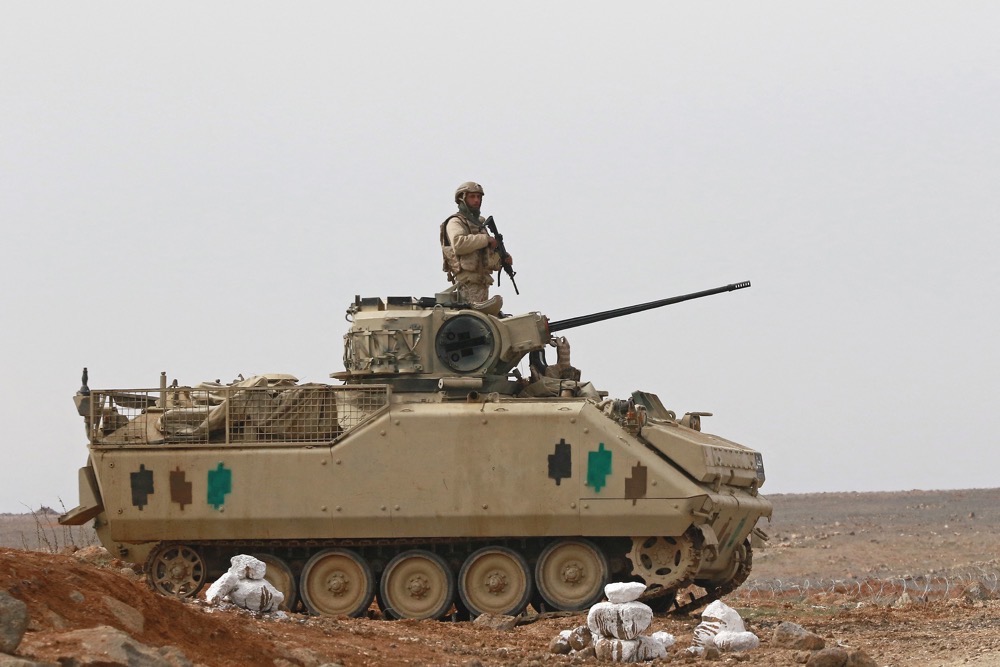
That said, he believes the Jordanians ultimately “don’t think Syria has the will or capacity to do anything about it.”
Amid calls for the US to provide Patriot missile defense systems, Saud Al-Sharafat, a former Jordanian brigadier-general, said that Jordan is “in an explosive region,” with fears that Iran and its well-armed militias could enter the Gaza conflict.
“Regardless of whether there were drones or missiles that were intercepted or fired or not, the risk of Jordan being caught in the crossfire can only increase if the war (in Gaza) continues and expands,” he said.
